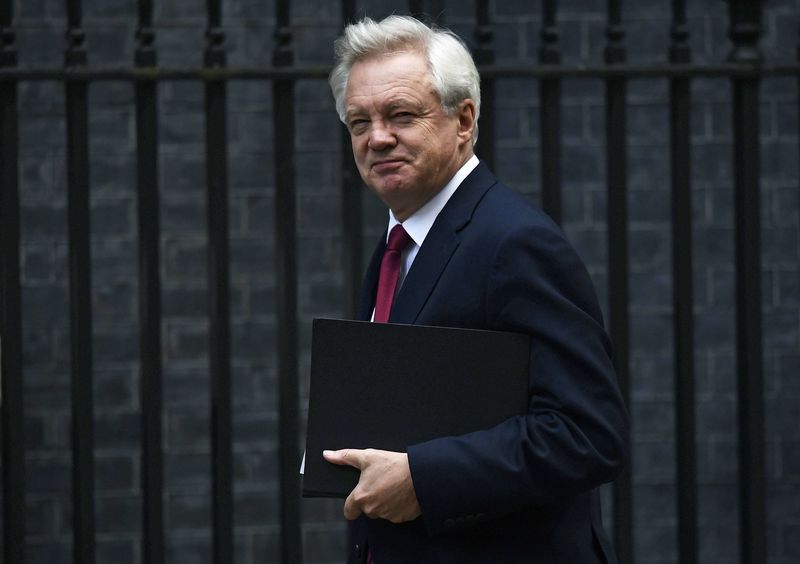(Bloomberg) -- Brexit Secretary David Davis puts the chances of a breakthrough in divorce talks by December at 50-50, according to European business leaders he briefed at a meeting on Monday.
"I asked Davis whether he still thought a deal was possible" by the EU December summit, Emma Marcegaglia, head of the BusinessEurope lobby group, told Bloomberg. "He said there was a 50-50 chance of getting a deal."
Another European business leader who attended the meeting, but declined to be named, also said the U.K. chief negotiator had put the chances of a deal at 50 percent. A spokesman for the Brexit secretary said in an emailed statement that“this is categorically untrue. David Davis did not say this.”
Talks are deadlocked over the contentious divorce bill as the divided U.K. government has been reluctant to accept EU’s demands to make a better offer. The EU has given the Brits two weeks to make more financial concessions, and says it won’t let talks move on to the future trading relationship -- or even the transition deal that companies on both sides crave -- until it does so.
As the clock ticks down to Brexit day in March 2019, businesses are making contingency plans, some of which involve relocations and shifting jobs from London.
Brexit’s Critical Five Weeks: The Key Dates as the Clock Ticks
EU leaders meet on Dec. 14 for a summit and in the run-up to that meeting will decide whether the U.K. has done enough on the divorce issues to move talks along. If December is a bust, EU officials have indicated the next opportunity for a breakthrough will be in March.
‘Pass the Buck’
That would leave about seven months to hash out a deal before it goes to the European Parliament for approval. For company executives needing to plan ahead that might be too late. They are after transition arrangements that can be spelled out no later than January -- or they lose their value.
May’s efforts to convince European companies to lobby their respective governments to seek a rapprochement also fell flat. EU members have remained united in the face of Brexit, and have delegated the issue to chief negotiator Michel Barnier.
“May in particular said that we business leaders should express our concerns to the EU governments,” Marcegaglia said. “She and Davis are trying to pass the buck but it’s the British government which has to make a move.”
The U.K. argues it’s made important steps and it’s now up to the EU side to respond in kind. But the EU wants a divorce settlement of about 60 billion euros ($70 billion) that includes commitments the U.K. signed up to as a member. The U.K. has only accepted about a third of that, at least in public.
Marcegaglia, 51, is arguably Italy’s leading businesswoman. She co-runs the family steel company and was the first woman to head Confindustria, the country’s influential employers’ body at a time when Silvio Berlusconi was running the country.
Her job now requires frequent travel to European capitals and regular commuting in and out of Brussels, where she’s paying attention to the mood music about where Brexit talks are headed. In London, she also heard the British side of the story.
She appreciated that “they listened to us for more than an hour, they took notes.” And she heard that "May said it was also up to the EU to make a proposal.”
But in the end her message to the U.K. was clear.
“We told her that the U.K. government should make a move," Marcegaglia said. "I think May and Davis underestimate the fact that there is a negative mood in Europe on Brexit, because the British government is not making proposals."
(Updates to add Davis spokesman’s comment in third paragraph.)
